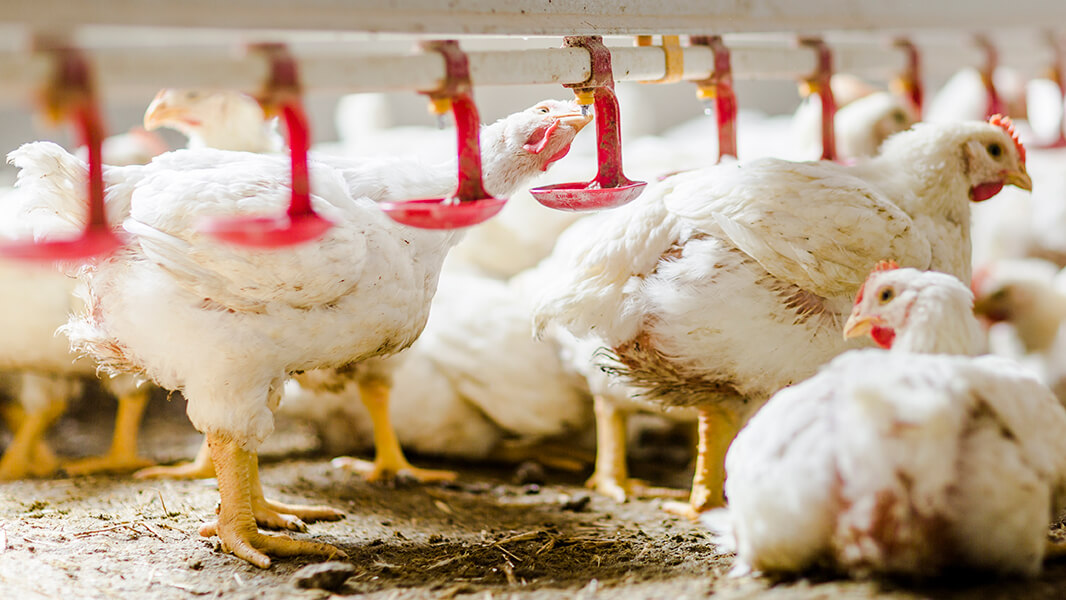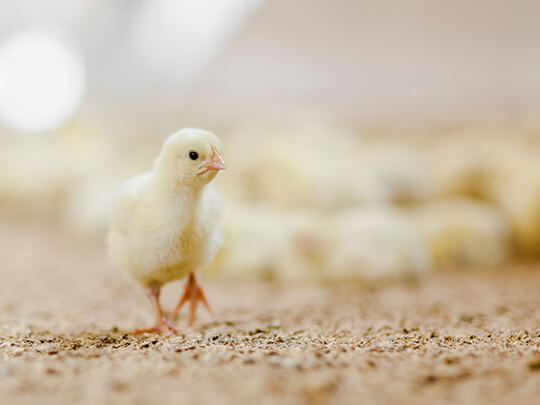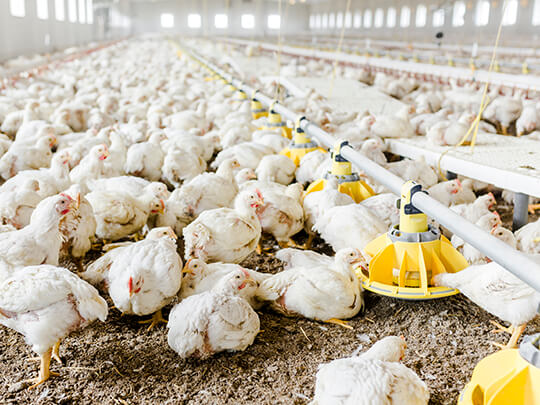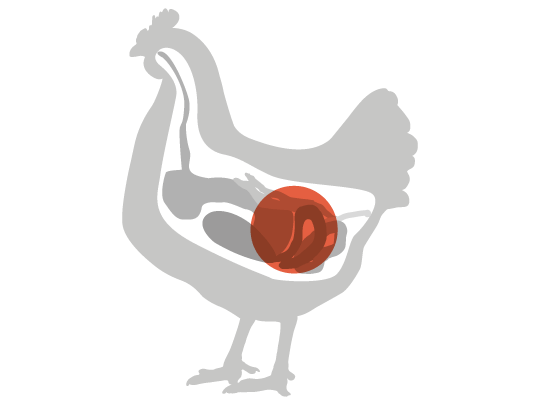
Heat stress in poultry production
Did you know that hot, humid weather has large implications for poultry production? Bird's response to rising temperatures can lead to significant performance losses due to lower feed intake which in turn leads to reduced body weight gain and egg production. The consequently decreased feed efficiency is often going along with a strong negative impact on profit.
Heat stress is an important environmental challenge for the poultry industry. In US, the costs of heat stress amount to more than 100 million US$ per year1, whereas the impact on less integrated poultry production in (sub)tropical areas is much higher.

Heat stress in poultry production as performance brake
The condition of heat stress in poultry production occurs when animals are not able to reduce their core body temperature due to high ambient temperature in combination with high humidity. The effect of heat stress can result in unfavorable consequences that range from discomfort to increased mortality. Heat stressed animals change their behavior and physiology to attempt to regulate body temperature, reduce heat production and dissipate heat. Commercial broilers are particularly susceptible to hot and humid weather conditions, as their metabolic heat production is relatively high.
Reduced feed intake is one of the first noticeable consequences of heat stress in poultry production systems. Increased water consumption is another response to heat stress. Housing poultry at high ambient temperatures, especially in combination with high humidity not only impairs production performance but could impair intestinal integrity, natural defense mechanisms and meat quality.
Did you know?
Heat stress in poultry leads to reduced feed intake. Therefore, the energy, protein and additional nutrients necessary for production are lacking and will have negative impacts on performance.

Support is needed
High ambient temperatures and humidity can lead to oxidative stress in poultry due to an increase of free radical production. Without support for the bird’s natural anti-oxidative defense mechanisms, the balance between the production of free radicals and antioxidants can be quickly disturbed. Certain plant-derived compounds can help to maintain this balance and support the maintenance of a normal antioxidative capacity of the bird.
The goal is to provide the poultry with the necessary energy by supporting feed intake and the use of nutrients, which it needs to maintain a normally functioning natural defense system and stable intestinal function.
Interested in other Challenges & Solutions?
Biostrong™ Comfort – phytogenic comfort under uncomfortable conditions

- Improves growth performance and feed conversion ratio even under uncomfortable conditions
- Improves feed intake and supports well-being of poultry
The phytogenic feed additive Biostrong™ Comfort was specially developed to support poultry even at uncomfortable temperatures. The special formulation of flavonoids, essential oils and other phytogenic active ingredients in Biostrong™ Comfort supports feed intake even under uncomfortable conditions – high comfort for better performance.
Nature that works – proven scientifically
Supplementing Biostrong™ Comfort contributes to improve body weight gain and feed conversion ratio even during heat stress conditions.
1 Tellez Jr, Guillermo & Tellez, Guillermo & Dridi, Sami. 2017. Heat Stress and Gut Health in Broilers: Role of Tight Junction Proteins. Adv Food Technol Nutr Sci Open J. 3(1): e1-e4.
*Average data of 3 trials with Biostrong™ Comfort in broilers under cyclic heat stress conditions, P107, P110, P121.
Some products are only approved for use in certain geographies, end uses, and/or at certain usage levels. It is the customer's responsibility to determine, for a particular geography, that (i) the product, its use and usage levels; (ii) the customer's product and its use; and (iii) any claims made about the customer's product, all comply with applicable laws and regulations. *Any references to “natural/naturally” are as defined by www.aafco.org. Any references to “feed additive(s)” are as per the laws and regulations in the United States. For product registration information, please refer to the product data sheets.
Get in contact

Megan Koppen
RTM Poultry, Sales Group North America
Phone:
+1 (630) 731-0250
e-mail:
Megan_Koppen@cargill.com